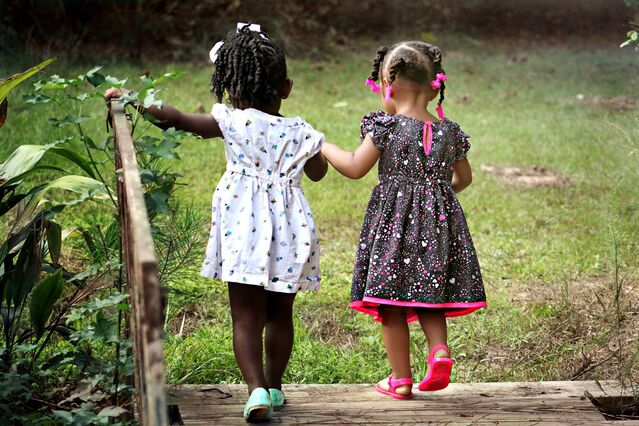Health
6 Actions to Improve Your Kids’ Mental Health
There's a mental health crisis among youth, but you can help.
Posted April 5, 2022 Reviewed by Hara Estroff Marano
Key points
- Children are suffering a mental health crisis. Actions now can improve mental health outcomes and overall well-being.
- Families play a critical role in creating opportunities for support and healing for children experiencing mental health concerns.
- Developing routine, structure, and communication play an important part in helping children deal with unpredictability.
- Mindfulness, meditation, and breathwork as a family might be one tool that centers each individual and brings the family closer together.

Children’s mental health has deteriorated during the Covid-19 pandemic. Whether due to social isolation, community restrictions, the difficulty of virtual school, stress in the family from being in close quarters, or changes in income, illness or loss of family members, or uncertainty about the future, kids are experiencing stress on levels unprecedented in this generation.
In addition to seeking supportive treatment and community engagement, here are six things you can do in your home to help children deal with stress and improve their mental well-being.
Focus on What Children Do Right
Often parents catch their children doing something “wrong” and punish them for that behavior. While it is appropriate to redirect inappropriate behavior, it can feel to kids like they don’t ever do anything “right.”
Finding opportunities to praise positive behavior will help boost a child’s self-esteem. Did the child say thank you for a favor done for them? Did they remember to take out the garbage without having to be asked? Did they help fold the laundry, giving a parent time to do something else? Did they say something witty or insightful during a conversation? Take opportunities to let children know what they do well, praise them, and build up their desire to act in appropriate and helpful ways.
Provide Opportunities to Earn Rewards
Let children earn perks or rewards. Maybe a child finds virtual education boring. If they engage all week, allow them to choose a movie to watch together as a family or cook their favorite meal for dinner. Rewards that involve family time and shared interests can be particularly impactful for kids, reinforcing positive behavior with family connection. The more the family connects in respectful and loving ways, the more likely it becomes that your child will share the difficult situations and feelings they face with you.
Respond Instead of React
Everyone loses their cool now and again, but if you as a parent can model calm by responding instead of reacting to difficult behavior or situations, you will show your child through example how to deal with their feelings. Not knowing how to deal constructively with challenging feelings such as anger or frustration can exacerbate the stress experienced by individuals and the family as a whole. Showing how to remain calm and process feelings in a constructive way will benefit your children, and you.
Emphasize That You’re in This Together
Mental health problems tend to worsen in isolation and improve with connection. If the family unit is emotionally connected, youth are more likely to discuss what is wrong. Emphasize to your children that the family operates as a team. Be supportive of one another, in the highs and the lows. By creating an experience of connectedness and unity, children have the safety to work through the issues that they face.
Breathe—Separately and Together
Meditation and breathwork have been shown to improve mental health in youth, adolescents, and adults. In particular, mindfulness practices help students orient to the present moment, helping to alleviate stress and mental rumination that can cause anxiety. If the adults in the family practice meditation or breathwork, they can learn to better regulate their emotions and reduce their reactivity in difficult situations. Children who meditate have better mood regulation, emotional awareness, and self-control than non-meditators. Meditating as a family can be an important way to emphasize family love and support.
Be Consistent with Yourself and Your Children
One of the aspects of the pandemic that has undermined the mental health of children and adults alike is the unpredictability of it. Consistency and routine go a long way toward creating feelings of safety. Control what you can—from wake-up times to activities together. Even small things like the daily brushing of teeth before going to bed can help children to feel secure. You can model this behavior by creating and sticking with your own routines. Building predictability and security where you can will help to buffer children from the inconsistency of life.
While none of these actions is curative of mental health problems, collectively they can build a strong family system and aid in the development of a supportive family structure that allows youth to feel the safety needed to heal, if mental health issues develop.


